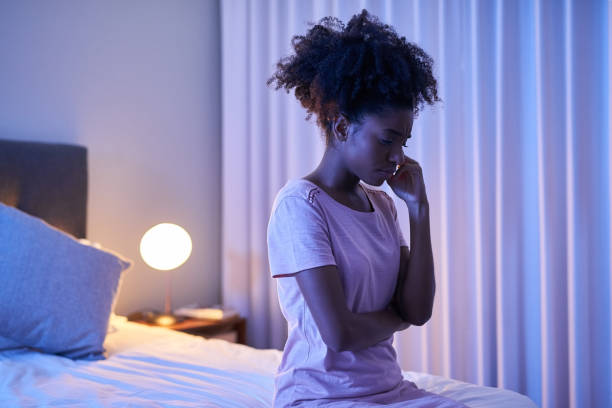
Anyone can have a little trouble sleeping from time to time. This is especially likely since sleepless nights can be caused by anxiety, stressful situations, or even a little too much alcohol. However, if you’re constantly unable to get a good night’s sleep, there could be more to it. These three sleep disorders can make it difficult to sleep well consistently, which may affect your overall health. Fortunately, they can be managed.
1. Restless Leg Syndrome (RLS)
As the name suggests, restless leg syndrome (RLS) is characterized by the involuntary need to move the legs. There may also be an incessant tingling sensation that doesn’t seem to go away.
While it can strike during the day, it’s more likely to affect you in the late evenings and into the night. Some people alleviate the symptoms by walking around and shaking their legs.
RLS typically makes it hard to fall asleep because the symptoms get worse when you lie down or keep still for prolonged periods.
The exact cause of the condition can’t always be determined but it can sometimes be associated with conditions such as Parkinson’s disease or attention deficit hyperactivity disorder (ADHD).
RELATED: 5 Things Getting In The Way Of A Good Night’s Sleep
2. Sleep apnea
With sleep apnea, your breathing is interrupted during the night. These interruptions mean you wake up often though you may not always be aware of it. This lack of sleep can result in chronic fatigue, trouble concentrating, and memory issues.
Typically, there are two types of the condition and they’re categorized based on what causes the interrupted breathing.
In obstructive sleep apnea (OSA), the soft tissue at the back of your throat blocks the airway. In central sleep apnea (CSA), your brain doesn’t tell your body to breathe. The second type is rare but you’re likely to be aware of all the times you wake up. If you snore a lot, it can
also be a sign that you’re dealing with sleep apnea.
RELATED: Sleep Disorders Highly Prevalent in Children With Migraines
3. Parasomnias
This term is actually used to describe a wide range of conditions that can interfere with your sleep. These conditions include sleepwalking, talking in your sleep, grinding your teeth, and night terrors.
While parasomnias are known for affecting children, some adults can also be afflicted with the condition.
If someone is diagnosed with this condition, it can usually fall into one of three categories depending on which part of the sleep cycle is affected. These are known as NREM-related parasomnias, REM-related parasomnias, and other types of parasomnias that don’t strictly fall into the other two categories.
RELATED: Undiagnosed Sleep Disorders Hurt Blacks Most
How To Get A Diagnosis
If you’re concerned that a sleep disorder could be affecting how well you sleep, it’s best to talk to your doctor. Since these disorders can be associated with other chronic conditions, it’s likely that you’ll be tested to determine if this is the case.
Usually, effectively treating the condition or conditions that led to the sleep disorder will put you back on track to a good night’s sleep. In some cases, it’s not that simple and so your doctor will recommend that you do a sleep study or polysomnogram (PSG).
The sleep study will record your physical activity while you’re asleep. Based on the results, it will be possible to determine what’s affecting you. If you’re diagnosed with a disorder, there are several options for treatment. A good bedtime routine that encourages sleep is commonly at the top of the list, but people also benefit from therapy, sleep aids, medication, and breathing equipment such as a continuous positive airway pressure (CPAP) machine.
With everything that’s happening around you, it’s not always easy to pinpoint the symptoms of a disorder. A good place to start is keeping a journal of what you can remember and it’s likely that you’ll see a pattern. This information may also be valuable when you decide to see a doctor for an official diagnosis.









